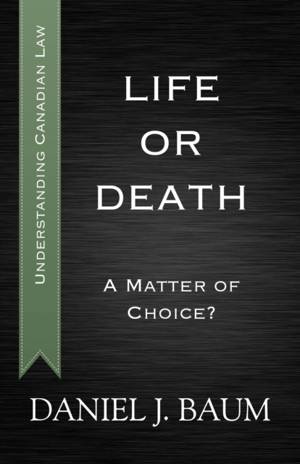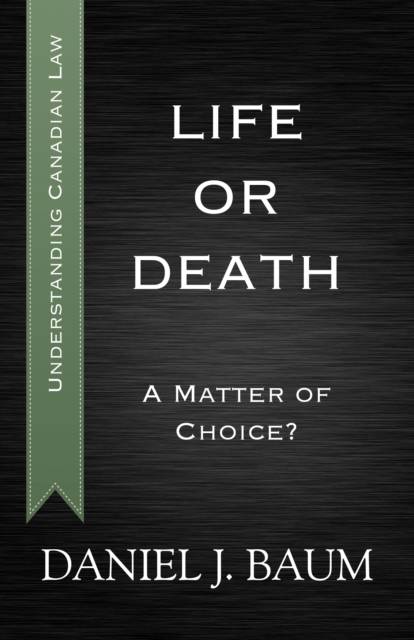
- Afhalen na 1 uur in een winkel met voorraad
- Gratis thuislevering in België vanaf € 30
- Ruim aanbod met 7 miljoen producten
- Afhalen na 1 uur in een winkel met voorraad
- Gratis thuislevering in België vanaf € 30
- Ruim aanbod met 7 miljoen producten
Zoeken
Omschrijving
A understandable overview of the laws regarding euthanasia, end-of-life treatment, and medication of those who may be unable to decide for themselves if the treatment is necessary.
Our bodies are ours to control, free from state interference -- or so it appears. The Charter of Rights and Freedoms provides: "Everyone has the right to life, liberty and security of the person and the right not to be deprived thereof except in accordance with the principles of fundamental justice."
But, how absolute is this? Do parents have the final decision in determining the medical care of their children, even if that choice may mean death? May children override the choices of their parents as to medical care? What role, if any, does the state (or the courts) have in reviewing individual medical choices, even if those choices are made by an adult but could result in death? Can physicians insist that their patients must have certain medical treatments? Do the terminally ill have the right to ask for assistance in dying?
These are among the questions upon which Canadian judges must rule. When and how they reach decisions are explored in Life or Death: A Matter of Choice?
Our bodies are ours to control, free from state interference -- or so it appears. The Charter of Rights and Freedoms provides: "Everyone has the right to life, liberty and security of the person and the right not to be deprived thereof except in accordance with the principles of fundamental justice."
But, how absolute is this? Do parents have the final decision in determining the medical care of their children, even if that choice may mean death? May children override the choices of their parents as to medical care? What role, if any, does the state (or the courts) have in reviewing individual medical choices, even if those choices are made by an adult but could result in death? Can physicians insist that their patients must have certain medical treatments? Do the terminally ill have the right to ask for assistance in dying?
These are among the questions upon which Canadian judges must rule. When and how they reach decisions are explored in Life or Death: A Matter of Choice?
Specificaties
Betrokkenen
- Auteur(s):
- Uitgeverij:
Inhoud
- Aantal bladzijden:
- 240
- Taal:
- Engels
- Reeks:
- Reeksnummer:
- nr. 4
Eigenschappen
- Productcode (EAN):
- 9781459723788
- Verschijningsdatum:
- 15/09/2015
- Uitvoering:
- Paperback
- Formaat:
- Trade paperback (VS)
- Afmetingen:
- 140 mm x 213 mm
- Gewicht:
- 317 g

Alleen bij Standaard Boekhandel
+ 29 punten op je klantenkaart van Standaard Boekhandel
Beoordelingen
We publiceren alleen reviews die voldoen aan de voorwaarden voor reviews. Bekijk onze voorwaarden voor reviews.











